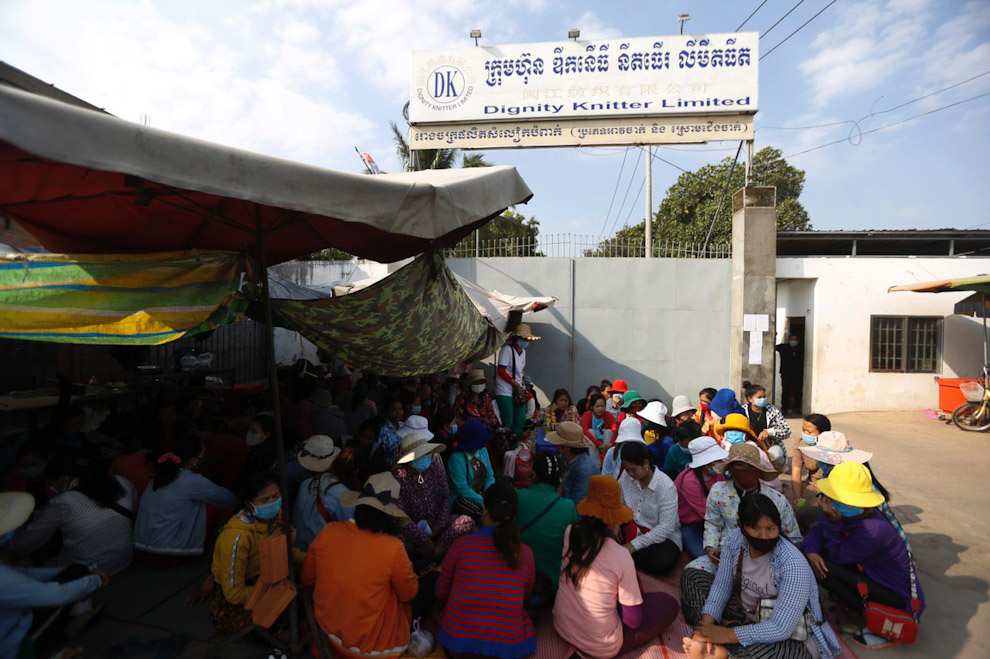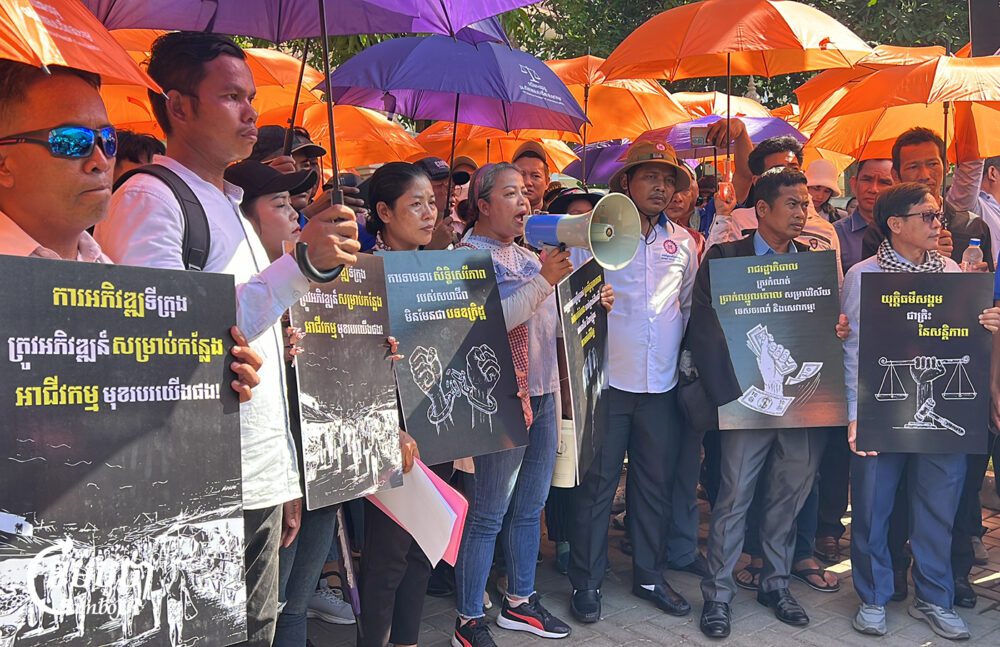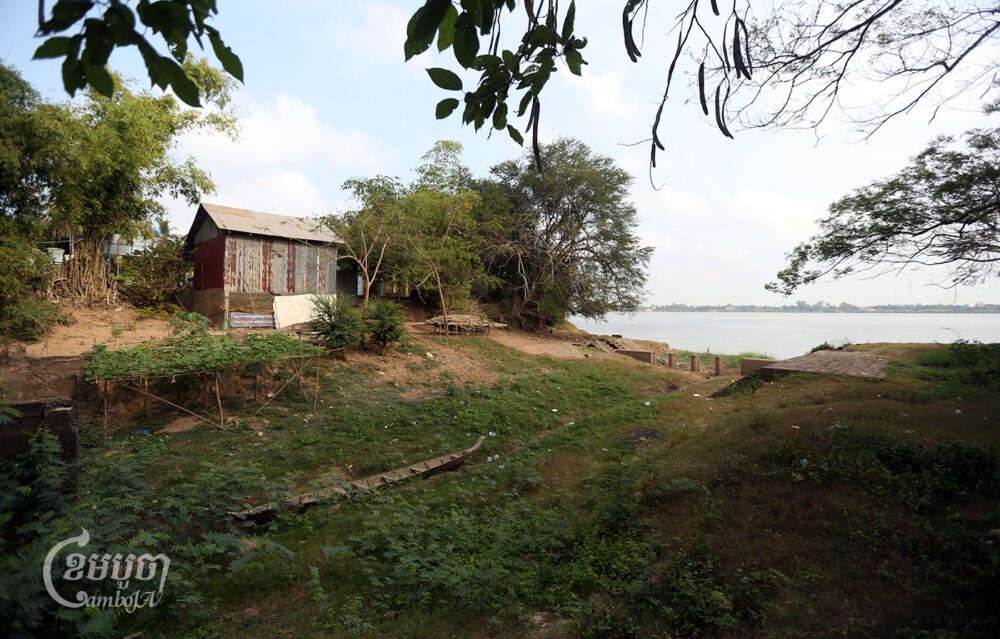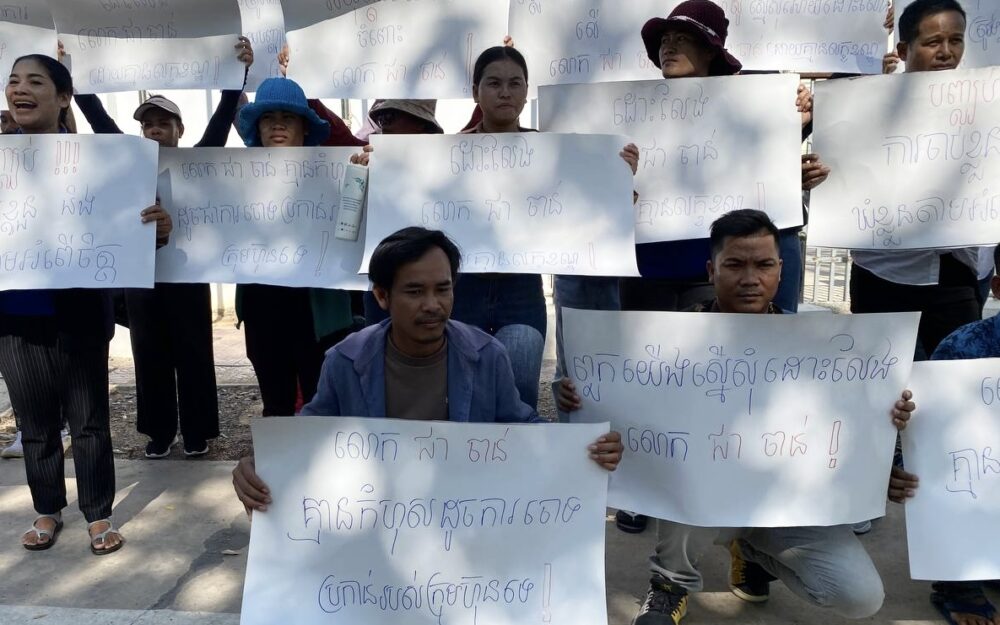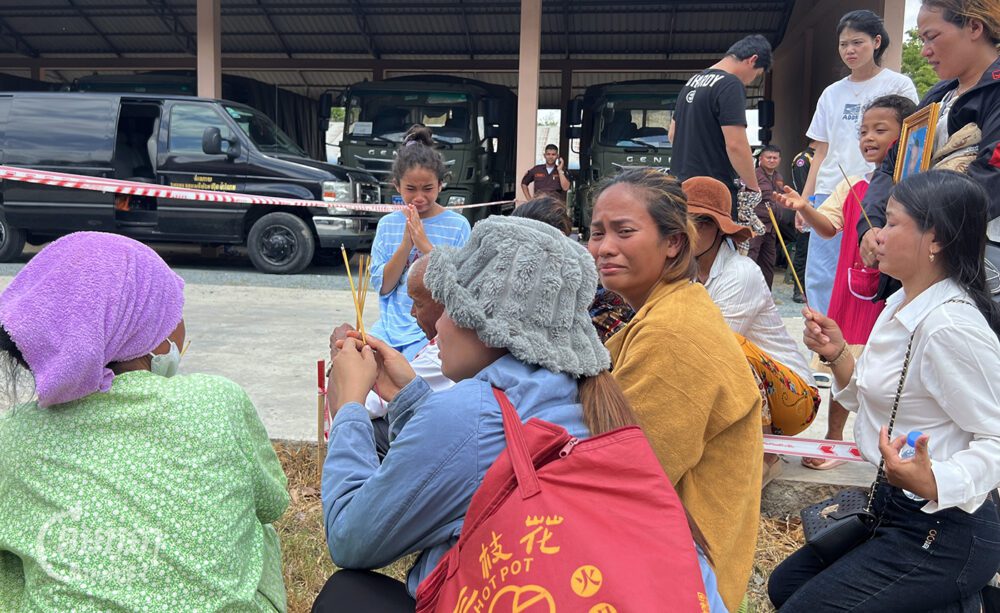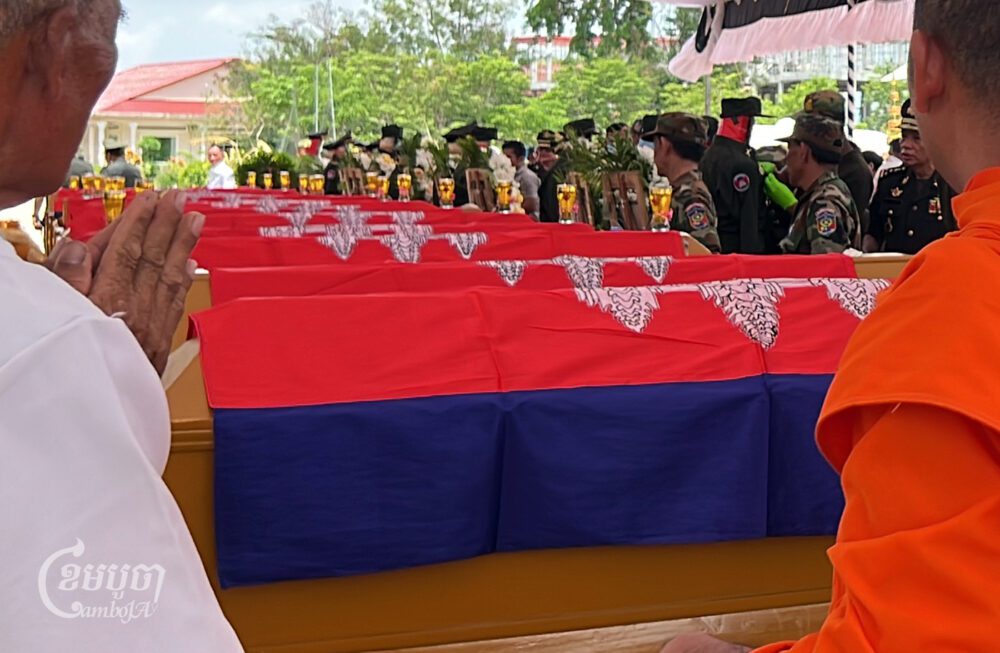More than 130 garment factories in Cambodia have suspended operations amid the global coronavirus economic slowdown, leaving nearly 100,000 workers without work and reliant on a modest and temporary government-supported stipend of $70 per month, Labor Ministry spokesman Heng Sour told reporters Monday.
Speaking at a press conference at the Council of Ministers, Sour said that Covid-19 had severely impacted the Cambodian industry’s two largest markets — the U.S. and Europe — and caused a big decrease in orders. He said clothing orders in this year’s second quarter may reach only 50-60% of the same period last year.
“There are more than 130 factories that have suspended [operations] and it has impacted nearly 100,000 workers,” Sour said, adding officials asked factories not to outright lay-off workers so that they could still be eligible for the $70 program.
“The government has encouraged factories to just apply to suspend instead of closing because during the time that they are suspended, those workers have not lost their whole job — they do not become workers who have lost work yet.”
Under the $70 stipend, the government pays workers $40 a month while factories that have suspended operations are meant to cover an additional $30 a month. By comparison, the minimum salary in the garment industry, which before coronavirus employed an estimated 800,000 people, was set at $190 per month for 2020.
Sour said that he hoped that once the Covid-19 crisis eased, many of the factories that had suspended operations would be able to reopen and re-employ workers.
He also said that last week health officials had tested only 5,043 of the workers who failed to show up to work during the cancelled Khmer New Year holiday. He said many workers had simply failed to return to work at all, knowing they would be forced to isolate or quarantine at state-run institutions with little money. Instead, Sour said, many had presumably chosen to just remain at their family homes.
Ken Loo, secretary general of the Garment Manufacturers Association in Cambodia (GMAC), said that many more factories would soon announce suspensions, too, with some having already submitted applications to the Ministry of Labor.
“At least, there could be 100 factories or more next month extra – on top of the 130 factories which were suspended. In total, there will be more than 200 factories,” Loo said, adding he hoped the suspensions would be rolled back after Covid-19 but he could not be sure. “It’s had a huge impact, and it will get more and more serious.”
Song Sokuna, a 39-year-old worker at the Top Silver Limited factory in Tboung Khmum province, said her factory had since March ordered half of the factory’s 827 workers to “rest” from work on 50 percent of their minimum wage. On April 20, she said, the owners had applied to the Labor Ministry to formally suspend 359 workers due to a lack of materials but an error in the letter had caused it to be rejected.
But she said workers there were happier to be on forced “rest” than suspended.
“If the factory owner orders workers to rest, we receive 50% of the minimum wage [$95], so it is better than if the factory decides to suspend workers, who only receive $70,” Sokuna said. “If the factory suspends and we only receive $70, we will have difficulties living because we need more money than that to support our families.”
Most garment workers also had large debts owed to microfinance institutions, she said, and risked losing collateral like land if they were unable to pay them back.
“As for me, I borrowed $3,000 from the bank to use to do farming but then I lost income because the market was down,” Sokuna said. “So, if the factory suspends me, I do not know where I can get the money to pay back the bank.”
Preap Monysovann, secretary general of the Collective Union of Movement of Workers, said he would push for more support for workers during an online meeting on Thursday between unions, garment buyers, GMAC and government officials.
“I will request that the government please help to coordinate with the banks and microfinance institutions to delay or suspend repayments from workers who were suspended, because they do not have enough money,” Monysovann said, adding that $70 per month was not enough for workers to live, let alone repay debts.
Yang Sophorn, president of Cambodian Alliance of Trade Unions, said she thought the government should revert to its original policy of requiring garment factories that have suspended operations to pay a much larger share to out-of-work employees.
“We still request the government keep its first measure — that the factories give them 40 percent [of the $190 monthly minimum wage] and the government provide 20 percent,” Sophorn said, adding that her union also believed that foreign garment buyers should then chip in the remaining 40 percent of the $190 figure.
Sophorn said the buyers and factory owners had grown wealthy from the workers during good economic times and should help the workers now that times are bad. “Our workers are an important energy who brought benefits to our country,” she said. “Going into the future, they are going to meet with more serious difficulties.”
According to the Health Ministry, there have been no new cases of Covid-19 for more than two weeks now. The official count of confirmed infections remains at 122, with 119 patients deemed recovered and three more still undergoing treatment.


